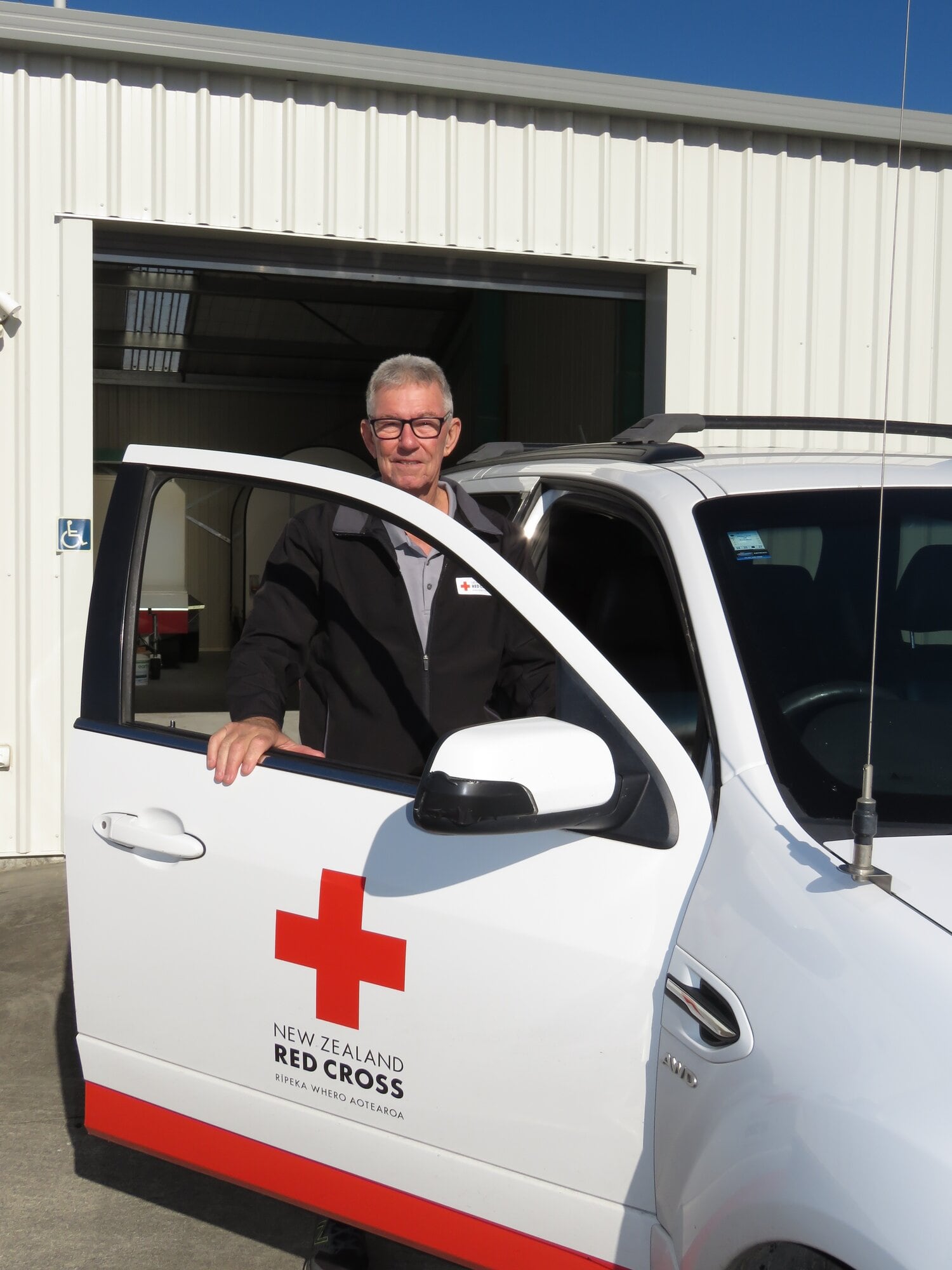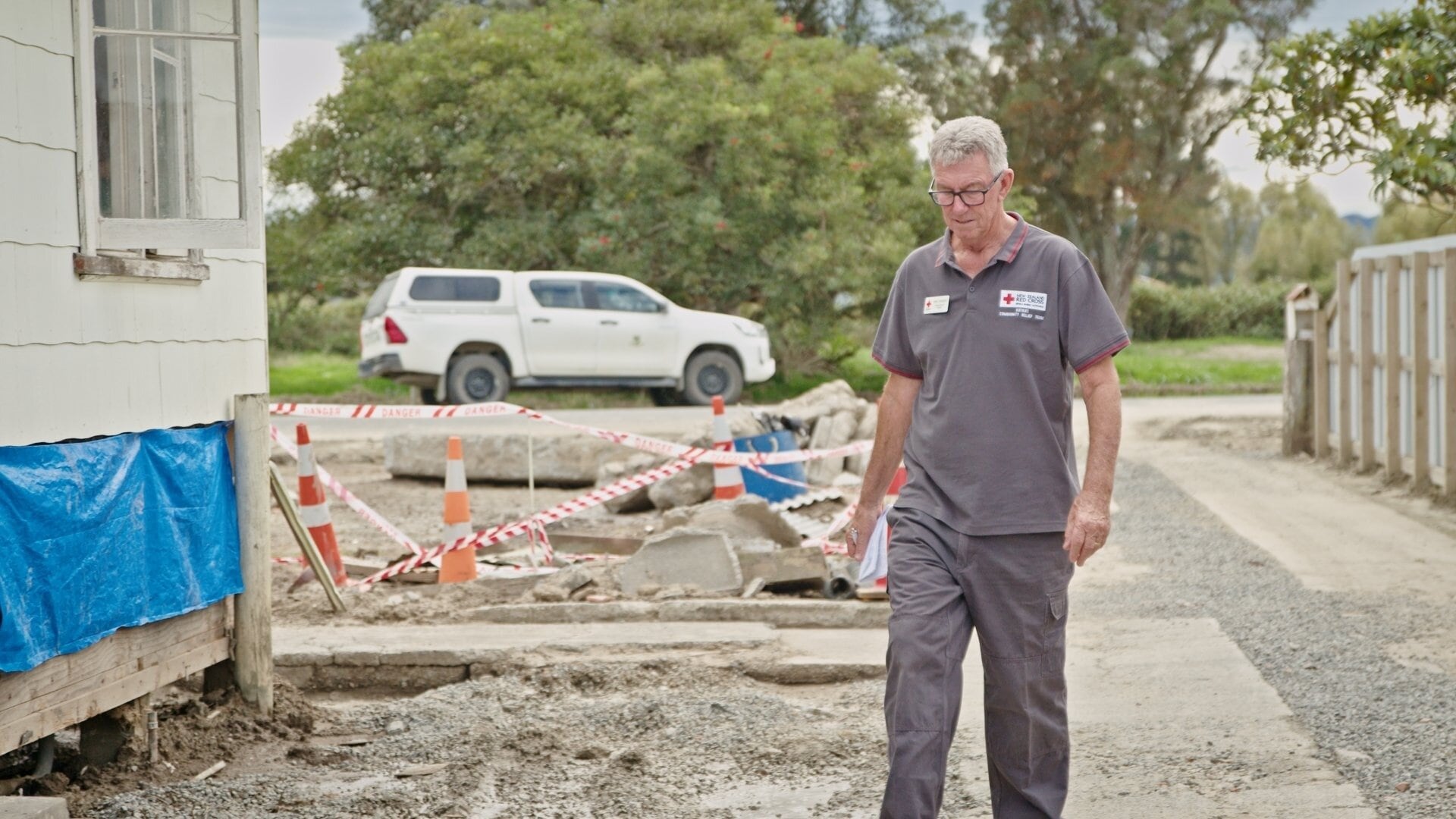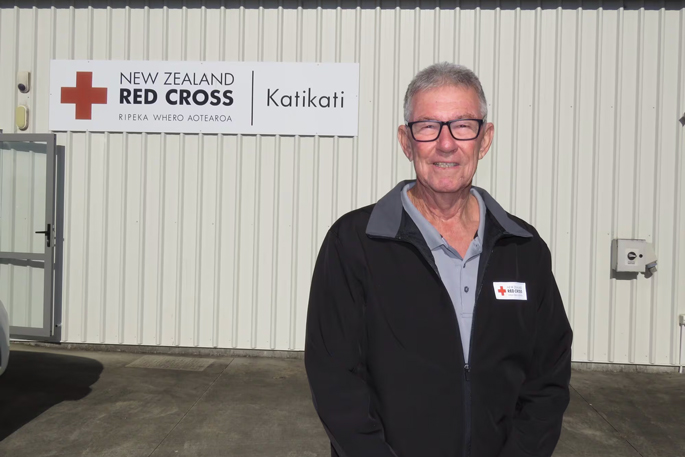The Katikati branch of the New Zealand Red Cross has established a Disaster Welfare and Support Team – but it needs more volunteers.
Branch president Phil Parker said the former Community Relief Team, which would provide support to the Katikati district in the event of an emergency, had progressed into a Disaster Welfare and Support Team (DWST).
“This means rather than just locally responding, we can respond to large-scale emergencies around the country, when called on,” Parker said. “What we’re looking for now is more members, so we can build up the DWST team at our Katikati branch.”
The Katikati DWST is one of 20 nationwide that are prepared to help in their communities or further afield at short notice. Members could be deployed to assist in a flood, fire or other large-scale emergencies, and help with a range of activities that could include setting up and providing support in evacuation centres; undertaking needs assessments to understand what support people need; and providing psychosocial support. “We work alongside other emergency management agencies.”
Respond further
Parker said Katikati’s DWST comprises seven members but he’d like to have 15-20 signed up and undertaking training. “That would allow us to respond further around the whole country if we need to because you can’t always guarantee that everybody can respond.”

Red Cross Katikati branch president Phil Parker wants more people to volunteer for the newly-established Disaster Welfare and Support Team. Photo / Merle Cave
Katikati residents aged 16-plus who are reasonably fit and healthy can volunteer. “We will train them. There’s a 14-module training package we put them through over 12 months. Normally, we train once every two weeks for a few hours on a Wednesday night [at the Katikati Red Cross branch on Middlebrook Drive],” Parker said.
“The commitment we would like is that each volunteer at least gives us 12 months as a member, because we do put a lot into them – they’ll get full uniforms, training, and their comprehensive first aid certificate and a psychological first aid course. And it costs the volunteer nothing – only their time.”
In return, members will learn skills to be able to look after themselves during a disaster and their neighbours and family; plus build more skills and friendships as part of a nationwide group of DWSTs.
Helping after Gabrielle
Parker said the most recent emergency Katikati Red Cross members had responded to was Cyclone Gabrielle in February 2023. He was on the ground in Gisborne soon afterwards.
With 35 years of disaster response experience here and internationally, Parker became the New Zealand Red Cross regional project manager for Tarāwhiti and Wairoa, helping to distribute funding to communities right up the coastline who desperately needed it to rebuild their lives.
“I worked with those that needed financial assistance, those that had lost everything.”
He was there 12 months. What does the work feel like? “It’s pretty awe-inspiring, really.”

New Zealand Red Cross regional project manager for Tarawhiti and Wairoa, Phil Parker visits a yellow stickered home in Wairoa back in 2023. Photo / NZ Red Cross.
Last weekend, via invitation, he returned to Gisborne to see ground preparation for a new marae. Parker had supported the destroyed marae and its people back in 2023.
“Your input [as a DWST volunteer] could be life-saving or life-changing for someone who’s really at a quite a vulnerable part of their life,” Parker said. “The psychological first aid training we do teaches us how to help people that are absolutely distressed, and look after them as far as their welfare needs go. So there’s a lot of just supporting people when basically they’ve got nothing or they’re absolutely stressed to the max because of a disaster.”
More disasters ...
Parker said Cyclone Gabrielle shook New Zealanders into realising the effects of climate change. “That why it’s so important to be prepared – because we’re getting more and more disasters. There’s no question on that.”
Parker said between major disasters, people tend to forget they will strike again. “And because we’re such a small country, we don’t have the response capability if it’s a major disaster to look after everybody. So one of the things we do is we teach people how to look after themselves until help can come.”
Those keen to join Red Cross Katikati’s DWST can visit: www.redcross.org.nz/get-involved/volunteer-in-new-zealand/find-a-volunteer-role or call Parker for a chat about the role on 021 245 0557.



0 comments
Leave a Comment
You must be logged in to make a comment.